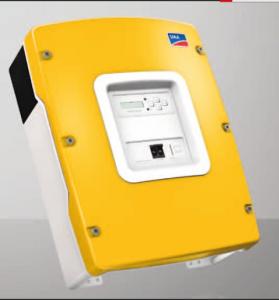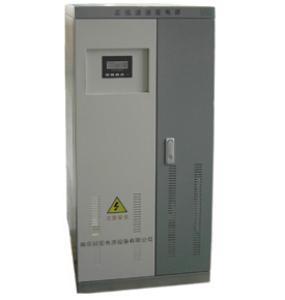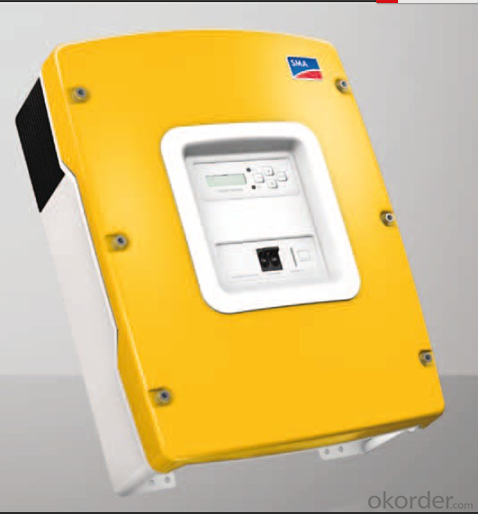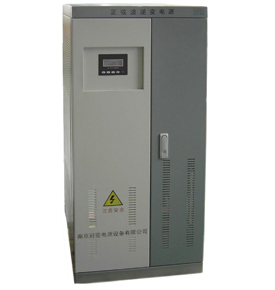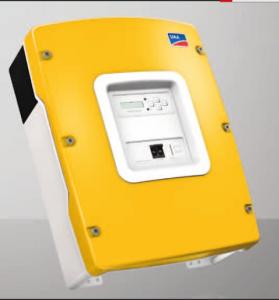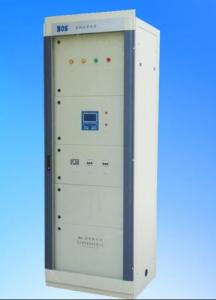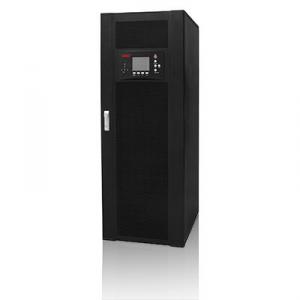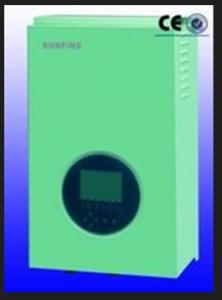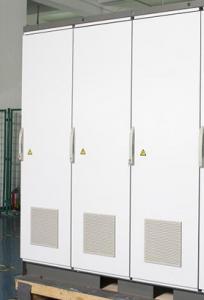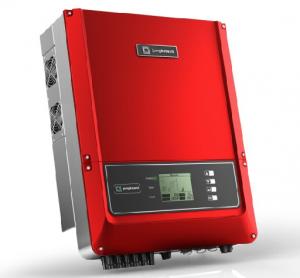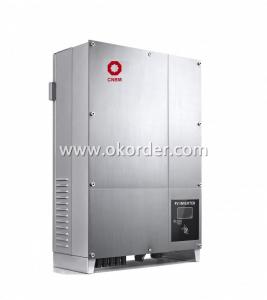Toroidal Solar Inverter PV Off-Grid Inverter GN-S-10KFS from China
OKorder Service Pledge
OKorder Financial Service
You Might Also Like
Description:
CNBMSOLAR is a world-leading and Vertical integrated manufacturer of high-performance with Silicon,
Wafer, Cells, Modules, which convert sunlight into electricity for residential, commercial, and utility-scale
power generation.
The capacity of CNBMSOLAR is reach to 1GW, and make sure each year our shipment capacity is more
Than 700-800MWs, at the same time, we have set up the largest solar power station with our partner
in Ukraine.
CNBM is a Quality + Service oriented company with“Excellence at Each Step” approach, composed of
the finest components from TUV and IEC-certified partners around the world, CNBM modules consistently
undergo a variety of trials at the company’s Test & Development Centre, ensuring peak performance
capabilities. The company is committed to develop and provide the world with clean and renewable energy
to ease the energy shortages as well as human kind’s impact on the environment.
Data:
'
Model | GN-□KFS□-□□V | ||
Rated Capacity(KVA) | 10 | ||
DC Input | Rated Voltage(VDC) | 216(VDC) | |
Low Voltage(VDC) | 194(VDC) | ||
Low Voltage Resume | 227(VDC) | ||
Load Overvoltage(VDC) | 300(VDC) | ||
Load Overvoltage Resume(VDC) | 297(VDC) | ||
Grid input | Input Voltage range | 220±15﹪(VAC) | |
Input frequency | 50±1(Hz) | ||
switching mode | 00、22、21 | ||
switching time | ≤10(ms) | ||
AC Output | output waveform | Sine wave | |
overload ability | 120% 1min | ||
output voltage | 220±3% | ||
Output frequency | 50±0.04(Hz) | ||
THD | ≤3℅(THD) | ||
Dynamic Response(0~100%) | 5% | ||
Inverter Efficiency | ≥90% | ||
Crest Coefficient(CF) | 3:1(CF) | ||
Continuous running time | Continuous running | ||
Display | LCD | ||
Content | DC voltage, dc current, voltage, utility line frequency, output voltage, output current, output frequency, output power | ||
Communication interface | RS232 | ||
Lightning protection device | NO | ||
Protection | Overcharge, over-discharge, overload, short circuit, reverse polarity, internal overheated protections, etc | ||
Dimensions(d\w\h mm) | 500*550*1200 | ||
Packing Size(d\w\h mm) | 590*640*1290 | ||
Reference weight(Kg) | 189 | ||
Protection class | IP20 | ||
Environment | Noisy(dB/meter) | ≤50 | |
Operating temperature(℃) | -20~+50(℃) | ||
Storage temperature(℃) | -25~+55(℃) | ||
Operating humidity | 0~95%(No condensation) | ||
Operating Altitude | ≤5000(m) | ||
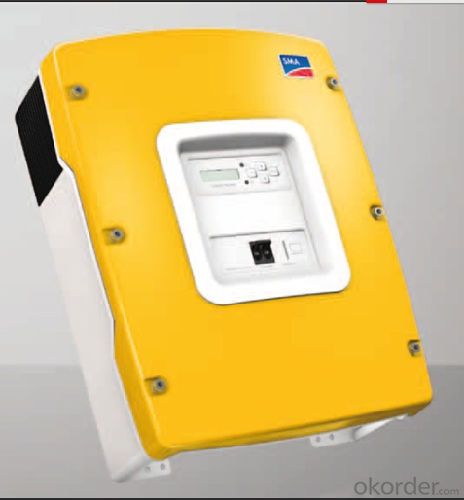
FAQ:Could you pls introduce more about CNBM?
CNBM Group is short for China National Building Materials Group Corporation, which is established in 1984 with approval from the State Council
CNBM Group is the largest comprehensive building materials industry group in China
The Group has a total asset of over RMB 360 billion, more than 180,000 employees and 17 subsidiaries
- Q: Can a solar inverter be installed in a residential area?
- Yes, a solar inverter can be installed in a residential area. In fact, residential areas are one of the most common locations for solar power installations, including solar inverters. These inverters help convert the DC electricity generated by solar panels into AC electricity that can be used to power homes and other electrical devices.
- Q: Can a solar inverter be used with different types of solar tracking systems?
- Yes, a solar inverter can be used with different types of solar tracking systems. Solar inverters are designed to convert the direct current (DC) produced by solar panels into alternating current (AC) for use in homes or businesses. They are compatible with various solar tracking systems, including single-axis and dual-axis trackers, as long as the voltage and power ratings of the inverter match the requirements of the specific tracking system.
- Q: Can a solar inverter be used in a solar-powered air conditioning system?
- Yes, a solar inverter can be used in a solar-powered air conditioning system. A solar inverter converts the direct current (DC) produced by solar panels into alternating current (AC), which is required to power most appliances including air conditioning units. By using a solar inverter, the solar energy generated by the panels can be efficiently utilized to run the air conditioning system, reducing reliance on the electrical grid and lowering energy costs.
- Q: What are the safety features in a solar inverter?
- Some of the safety features in a solar inverter include over-voltage protection, under-voltage protection, over-current protection, short-circuit protection, and ground-fault protection. Additionally, many modern inverters also have built-in monitoring systems that can detect and alert users to any potential issues or malfunctions.
- Q: How does a solar inverter handle frequency fluctuations in the grid?
- A solar inverter handles frequency fluctuations in the grid by continuously monitoring the frequency of the grid and adjusting its output accordingly. If the grid frequency increases, the inverter reduces its output, and if the grid frequency decreases, the inverter increases its output. This helps to stabilize the grid frequency and maintain a balanced power supply.
- Q: How does a solar inverter handle voltage fluctuations in the grid?
- A solar inverter handles voltage fluctuations in the grid by continuously monitoring the grid voltage. When the voltage deviates from the standard range, the inverter adjusts its output accordingly to stabilize the voltage and ensure a consistent supply of power.
- Q: What is the maximum operating temperature of a solar inverter?
- The maximum operating temperature of a solar inverter typically ranges between 40 to 50 degrees Celsius, depending on the specific model and manufacturer.
- Q: What is the standby power consumption of a solar inverter?
- The standby power consumption of a solar inverter refers to the amount of power that the inverter consumes when it is in standby mode or not actively converting solar energy into usable electricity. This power consumption is generally very low, typically ranging from 1 to 5 watts, as the inverter only needs to maintain its internal circuitry and monitor the solar energy availability.
- Q: Can a solar inverter be used with a three-phase electrical system?
- Yes, a solar inverter can be used with a three-phase electrical system. In fact, many solar inverters are specifically designed to work with three-phase systems. They convert the direct current (DC) generated by the solar panels into alternating current (AC) that can be used to power three-phase electrical loads.
- Q: Can a solar inverter be used in extreme weather conditions?
- Yes, solar inverters are designed to withstand extreme weather conditions. They are built to be durable and resistant to factors such as temperature fluctuations, humidity, and harsh weather elements. However, it is always recommended to consult the manufacturer's guidelines to ensure proper installation and protection measures are in place for specific weather conditions.
Send your message to us
Toroidal Solar Inverter PV Off-Grid Inverter GN-S-10KFS from China
OKorder Service Pledge
OKorder Financial Service
Similar products
Hot products
Hot Searches
Related keywords
